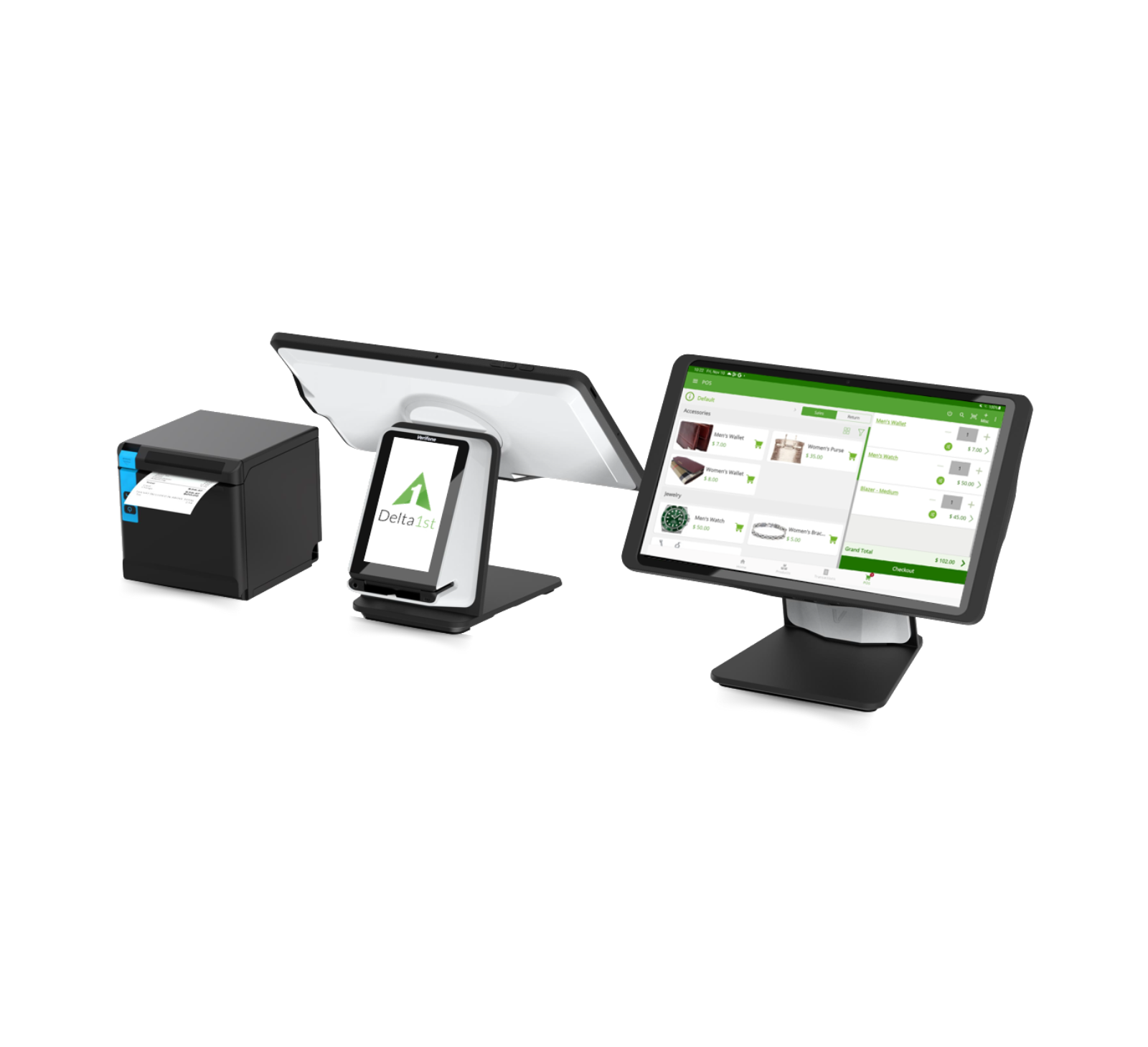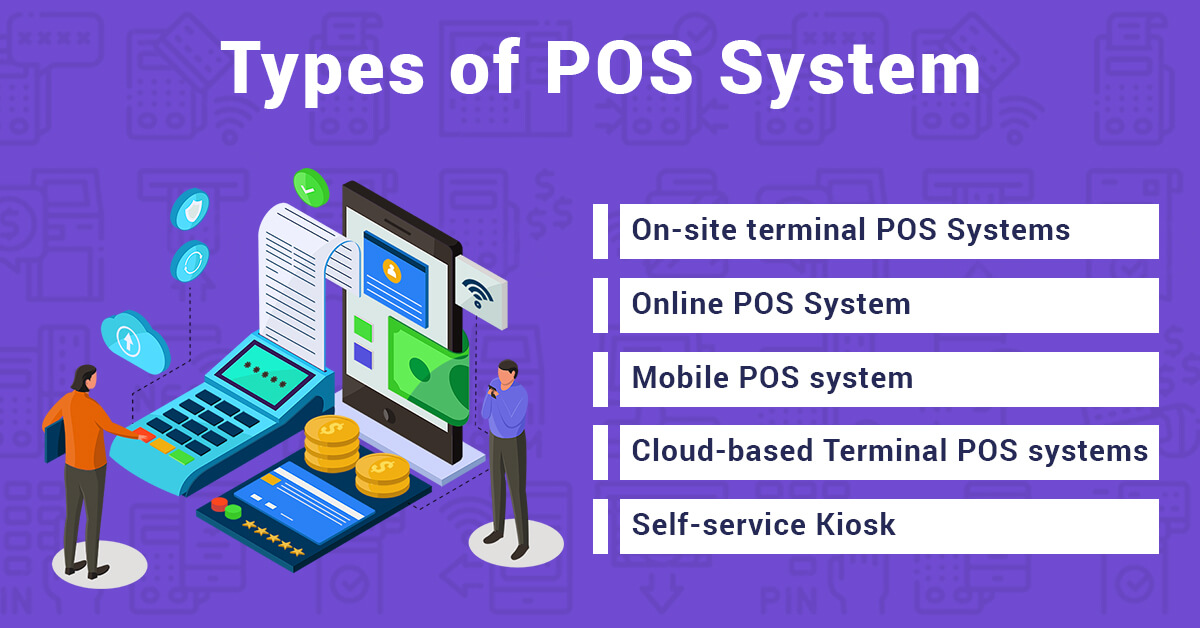Comprehending the Significance of POS Software Application in Modern Retail Workflow
In today's retail landscape, the duty of POS software has come to be progressively considerable. These systems have actually transformed from fundamental cash signs up to diverse tools that enhance different elements of operations. They not only improve transactions yet likewise provide insights that can shape organization methods. Comprehending how these systems influence customer experience and supply monitoring is essential for any type of store looking for to continue to be affordable. The ramifications of these innovations necessitate further expedition.
The Advancement of POS Software Application: From Deal Processing to Comprehensive Solutions
As retail settings advanced, so also did the performance of Factor of Sale (POS) software application, which changed from fundamental transaction handling systems to innovative, all-inclusive services. Initially, POS systems mostly dealt with sales purchases, taking care of money signs up and printing receipts. Nevertheless, with advancements in innovation, these systems started integrating supply monitoring, client relationship administration, and sales analytics. Sellers recognized the demand for seamless procedures and real-time data, prompting the advancement of cloud-based POS services that enabled remote gain access to and improved scalability.Additionally, the surge of mobile commerce demanded POS systems to adapt, making it possible for deals via smart devices and tablets. This transformation not just structured procedures but also improved reporting abilities, enabling retailers to make educated decisions based on comprehensive data understandings. Contemporary POS software has actually come to be indispensable to retail method, offering as a multifunctional tool that sustains numerous functional aspects beyond simple purchase handling.
Enhancing Customer Experience Through Advanced POS Features
While numerous stores concentrate on operational efficiency, advanced POS functions progressively prioritize boosting the customer experience. Modern POS systems currently offer capabilities such as mobile payment options, customized promotions, and client commitment programs, which promote a more appealing buying atmosphere. By streamlining the checkout procedure, these systems lower wait times, permitting customers to full deals promptly and efficiently.Additionally, integrated consumer relationship administration (CRM) features allow stores to track purchasing preferences and actions, assisting in tailored advertising initiatives. This personalization not just constructs client loyalty but also boosts general satisfaction.Moreover, advanced analytics offered by POS systems can aid stores recognize consumer trends and choices, allowing them to make enlightened decisions about product offerings and shop formats. Inevitably, the concentrate on consumer experience with sophisticated POS includes not only meets modern-day consumer assumptions but additionally drives repeat business and raises profits for merchants.
Enhancing Supply Management With Integrated POS Solutions
Integrated POS systems play a vital function in improving supply management by automating processes that typically called for significant manual effort (Restaurant POS Software). These systems enable merchants to track inventory degrees in genuine time, removing discrepancies that commonly arise from hands-on stock counts. With functions such as barcode scanning and automated stock replenishment notifies, organizations can preserve excellent inventory levels without overstocking or stockouts.Furthermore, incorporated POS systems assist in accurate projecting by examining historic sales data, permitting retailers to make enlightened buying decisions. This predictive capacity helps companies adapt to altering customer demands and seasonal trends much more effectively.Additionally, the centralization of stock information across several sales networks boosts visibility, enabling merchants to handle their supply extra efficiently. Ultimately, the assimilation of POS systems into stock management streamlines operations, decreases human mistake, and adds to enhanced profitability
Real-Time Sales Tracking and Coverage for Informed Decision-Making
Accurate supply management lays the foundation for reliable sales tracking and coverage. Real-time sales tracking makes it possible for stores to keep an eye on sales performance as it happens, supplying instant insights into client purchasing patterns and trends. This ability enables companies to respond swiftly to fluctuations sought after, maximizing supply degrees and decreasing overstock or stockouts.Moreover, incorporated POS systems assist in the generation of comprehensive reports, highlighting key metrics such as sales by group, period, and private products. Such coverage abilities empower sellers to make data-driven choices, recognizing effective strategies and locations needing renovation.

The Duty of POS Software Application in Customer Partnership Management
POS software application plays a vital function in boosting consumer relationship administration by making it possible for merchants to apply individualized advertising and marketing techniques. By analyzing consumer data, services can customize promos and communications to fulfill private choices. Furthermore, these systems help with the development of improved commitment programs that urge repeat service and enhance consumer engagement.
Personalized Marketing Approaches
As merchants significantly seek to enhance consumer loyalty and involvement, personalized advertising and marketing techniques have become a crucial element of reliable customer connection administration. POS software plays a crucial function in this process by gathering and analyzing client information, enabling sellers to customize advertising efforts to individual choices and purchasing behaviors. By leveraging insights from purchase backgrounds, retailers can produce targeted promotions and personalized interactions that reverberate with clients, fostering a deeper connection. In addition, the integration of POS software application with consumer relationship management systems permits smooth tracking of customer interactions, guaranteeing that advertising methods continue to be pertinent and prompt. This data-driven method not just improves client contentment however likewise urges and drives sales repeat organization, strengthening the seller's market setting.
Improved Loyalty Programs
Retailers are increasingly recognizing the significance of loyalty programs in fostering long-term customer relationships and improving overall involvement. POS software application plays a necessary function in the growth and management of these programs, enabling retailers to track consumer choices, acquisitions, and actions efficiently. By leveraging data analytics, organizations can develop tailored benefits and incentives that resonate with individual consumers, therefore enhancing engagement in commitment programs. Additionally, POS systems allow seamless integration with mobile applications and digital platforms, assisting in easy access to promos and benefits. This not only enhances client satisfaction yet also drives repeat organization. Ultimately, POS software encourages retailers to cultivate deeper links with their customers, changing periodic consumers into faithful clients through targeted and significant involvement strategies.
Integrating POS Systems With Shopping Platforms for Omnichannel Success
To attain real omnichannel success, smooth assimilation between point-of-sale (POS) systems and ecommerce platforms is crucial. This integration enables stores to combine their stock administration, ensuring that item schedule is properly reflected across both online and physical stores. Customers benefit from a natural shopping experience, where they can easily switch between networks without encountering discrepancies.Furthermore, integrated systems promote real-time information sharing, making it possible for organizations to assess client actions and choices better. This data-driven strategy permits merchants to customize advertising and marketing methods and maximize supply levels, eventually boosting client fulfillment and driving sales.Additionally, the capability to procedure deals throughout platforms simplifies procedures, minimizing the risk of errors and enhancing total performance. As sellers significantly adopt omnichannel strategies, the integration of POS systems get more info with shopping systems continues to be an essential consider accomplishing sustainable development and keeping affordable benefit in the dynamic retail landscape.

Future Patterns in POS Modern Technology and Their Effect On Retail Operations
As retail procedures progress, future fads in POS modern technology are established to reshape the landscape significantly. The rise of cloud-based remedies, innovations in mobile POS systems, and the advantages of AI integration are among the key developments prepared for to enhance efficiency and consumer experience. These developments assure to streamline processes and promote an extra dynamic retail atmosphere.
Cloud-Based Solutions Increase
With the boosting dependence on modern technology, cloud-based POS remedies are changing retail procedures by using enhanced adaptability and scalability. These systems enable merchants to gain access to real-time information from anywhere, assisting in better decision-making and client service. By leveraging cloud framework, businesses can minimize in advance prices related to hardware and software setups while making sure seamless updates and upkeep. Additionally, cloud-based services sustain multi-location administration, permitting retailers to synchronize supply and sales throughout various outlets easily. This adaptability is important in today's hectic market, where customer preferences change quickly. As even more retailers adopt these services, they can expect improved functional efficiency and a much more receptive approach to market needs, eventually enhancing consumer fulfillment and commitment.
Mobile POS Innovations
The development of retail technology proceeds to shape procedures, specifically with the rise of mobile POS advancements. These systems allow sellers to refine deals anywhere within the shop, enhancing client engagement and simplifying check out processes. Mobile POS solutions boost inventory management by enabling immediate accessibility to supply degrees, helping personnel help customers more successfully. Furthermore, they facilitate individualized purchasing experiences through integrated customer data and loyalty programs. As smart phones come to be significantly advanced, merchants are embracing features such as digital invoices and contactless repayments, furthermore optimizing the acquiring journey. The change towards mobile POS not only enhances functional effectiveness yet additionally straightens with the expanding consumer preference for comfort, making sure that merchants remain competitive in a quickly progressing market.
AI Integration Benefits
AI assimilation represents a transformative leap in POS technology, offering stores a myriad of advantages that improve functional efficiency and customer experience. By leveraging device discovering formulas, sellers can evaluate buying patterns and maximize supply administration, minimizing waste and stockouts. Furthermore, AI-powered analytics offer tailored marketing suggestions, allowing targeted promotions that raise client engagement and commitment (Restaurant POS Software). In addition, chatbots and virtual aides improve client service, permitting quicker resolution of inquiries and enhancing the overall buying experience. Anticipating analytics can likewise forecast demand fads, allowing smarter staffing and resource allotment. Inevitably, the assimilation of AI in POS systems encourages sellers to make data-driven choices, promoting an one-upmanship in an ever-evolving retail landscape
Frequently Asked Concerns
What Are the Costs Related To Applying POS Software Application?
The expenses connected with implementing POS software application can consist of software application licensing costs, equipment expenditures, setup charges, training prices, and continuous upkeep. Each aspect adds to the overall financial investment essential for a successful application.
How Can Little Retailers Take Advantage Of POS Systems?

What Equipment Is Needed for a POS System?
A typical POS system requires crucial hardware elements, consisting of a touchscreen screen, cash money drawer, barcode scanner, invoice printer, and payment terminal. These elements collaborate to assist in reliable purchase handling and stock administration for retailers.
Can POS Software Application Be Personalized for Particular Retail Demands?
POS software application can certainly be tailored to fulfill specific retail requirements. This versatility enables services to tailor functions, interfaces, and coverage devices, boosting functional effectiveness and offering an extra individualized experience for both staff and customers.
How Safe And Secure Is Consumer Information in POS Systems?
The here safety of client information in POS systems differs commonly. Many systems implement file encryption, protected access controls, and normal updates, yet susceptabilities can still exist, requiring recurring vigilance and aggressive measures from stores to shield delicate details. By improving the checkout process, these systems reduce wait times, permitting customers to complete transactions swiftly and efficiently.Additionally, incorporated consumer partnership monitoring (CRM) functions enable sellers to track Restaurant POS Software buying habits and preferences, helping with tailored marketing initiatives. As retailers significantly look for to boost customer loyalty and interaction, customized advertising techniques have emerged as an important component of effective customer connection monitoring. Additionally, the assimilation of POS software with client relationship monitoring systems permits for smooth monitoring of consumer interactions, guaranteeing that advertising and marketing approaches continue to be prompt and appropriate. Customers profit from a cohesive purchasing experience, where they can quickly change in between channels without running into discrepancies.Furthermore, integrated systems promote real-time data sharing, enabling organizations to evaluate customer actions and preferences a lot more effectively. Tiny stores can benefit from POS systems via enhanced purchase efficiency, structured supply management, and boosted customer understandings.